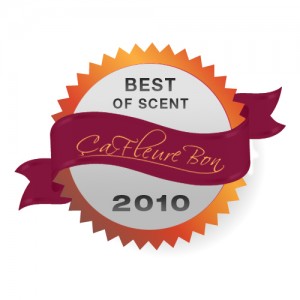The trend for green is seeing red. Red ink…. Americans love to say they are eco-consciousness, but they are more dollar conscious, according to today’s New York Times Business section: “As recession gripped the country, the consumer’s love affair with green products, from recycled toilet paper to organic foods to hybrid cars, faded like a bad infatuation. While farmers’ markets and Prius sales are humming along now, household product makers like Clorox just can’t seem to persuade mainstream customers to buy green. At Church & Dwight, its Arm & Hammer Essentials multisurface cleaner, glass cleaner and laundry detergent are no longer being produced for the United States market, less than three years after they were introduced”.
In my own informal survey in an online beauty chat room, there are certain products, especially shampoo without sulfates and parabens, like (Ric Pipino’s Revolution in Cut which is what I use) that the group will buy. But eco-friendly cosmetic lines? Meh. Performance and price are driving beauty not unregulated claims of organic and natural color brands. Note: Skincare does have its fans still.
So what does that have to do with www.cafleurebon.com, perfume and natural fragrances. Some leaders in the Natural Perfumery community admit that they worry that too many new natural fragrances created by untrained perfumers will hurt not help their Art. ( Editor's Note Leader Mandy Aftel is not someone who said the above)
Natural fragrance is at its height, and in the limelight, with Mandy Aftel of Aftelier Perfumes taking three Fragrance Foundation FiFi 2011 Finalists spots of four in the Indie category (voting is open). Mandy teaches classes, a world famous author and is acknowledged as the Alice Waters of the Natural Fragrance movement by thousands of her followers in very corner of the world.
Anya McCoy of Anya’s Garden has a school for natural perfumery and is the head of The Natural Perfumer Guild . The Natural Perfumers Guild has grown and is getting high marks, for the quality perfumers who are members, the exciting multi blog internet projects (as Senior Editor and Natural perfume Ida Meister once remarked in a review of a Mystery of Musk perfumer, 'Who knew there were so many talented natural perfumers”? But there are strict standards in The Natural Perfumer's Guild and a committee that doesn’t allow anyone with a rose garden to be awarded the title of Perfumer.
Ida awarded Guild member, Dawn Spencer Hurwitz, Perfumer of the Year 2010, Managing Editor Mark Behnke gave it to Pierre Guillaume and I bestowed the title on Bertrand Duchaufour. That alone from three fragrance experts should speak volumes.
There are over a dozen natural perfumers, who are self-taught and create wonderful natural fragrances and products such as Ayala Sender ( I only chose from the letter “A” in the alphabet ; can't list everyone list everyone, no room :)). Of course there are Fragrance Artists such as Liz Zorn of Soivohle, Kedra Hart of Opus Oils and the aforementioned Dawn Spencer Hurwitz of DSH Perfumes who switch palettes with and without synthetics with ease.
Last year a newbie ‘natural perfumer wannabe’ told me “My fragrances smell better than Mandy Aftel’s”. Sorry, Sir, they do not even come close. Learn your lesson from Clorox and the vastly downsized section of Sephora Natural section. It is not easy being Green. Your perfume has to hold its own..and not just because it is Natural.
This is the first Letter from the Editor for CaFleureBon which will appear monthly.
Feel free to leave a comment
– Michelyn Camen, Editor in Chief
Acknowledgement to “Sir” Hernando”




